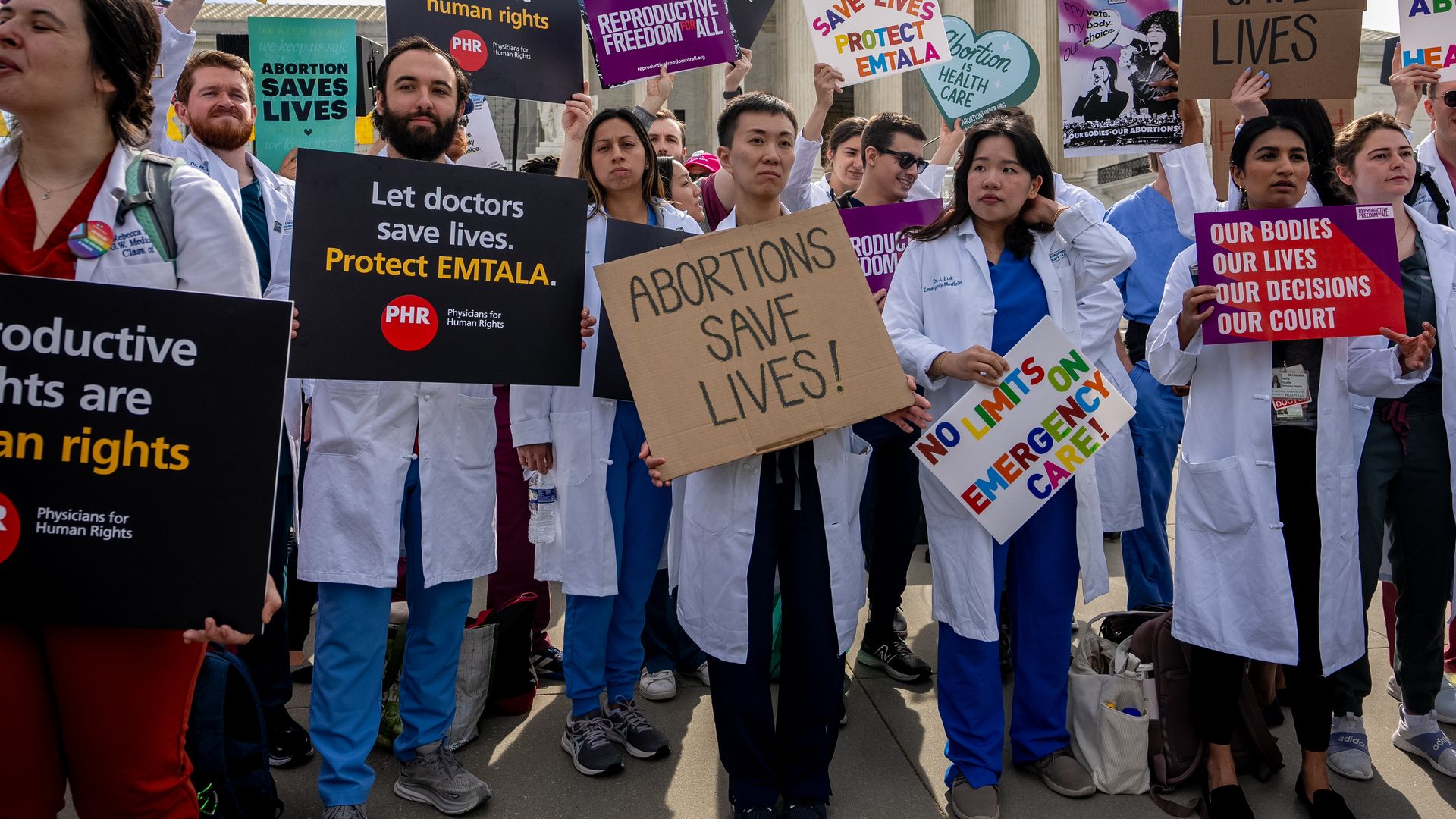
Supreme Court justices split over Idaho’s abortion law
Media Landscape
See who else is reporting on this story and which side of the political spectrum they lean. To read other sources, click on the plus signs below. Learn more about this data[RAY BOGAN]
Pro-choice and pro-life protestors gathered outside the Supreme Court as the Justices heard another contentious abortion case in the wake of the Dobbs decision. The Justices are going to decide whether the Emergency Medical Treatment and Labor Act or EMTALA, preempts state laws that “protect human life and prohibit abortions”, like Idaho’s Defense of Life Act.
EMTALA requires hospitals that receive Medicare funds to provide treatment, including abortions, for emergency conditions regardless of the patient’s ability to pay. Idaho outlawed abortion with exceptions for rape, incest or life of the mother, but not the health of the mother.
[Joshua Turner]
“EMTALA works precisely because states regulate the practice of medicine. And nothing in EMTALA requires doctors to ignore the scope of their license and offer medical treatments that violate state law,” Joshua Turner, who argued the case for the Idaho Attorney General’s Office, said in his opening statement.
[RAY BOGAN]
The crux of this case is – what happens if a woman’s health is at risk, but not her life?
[Elizabeth Prelogar]
“If a woman comes to an emergency room facing a grave threat to her health, but she isn’t yet facing death, doctors either have to delay treatment and allow her condition to materially deteriorate, or they’re airlifting her out of the state so she can get the emergency care that she needs,” US Solicitor General Elizabeth Prelogar told the Justices. “That’s untenable and EMTALA does not countenance it.”
[RAY BOGAN]
Justice Elena Kagan and other female Justices seemed to side with Prelogar based on their questions and statements. Kagan gave this example of an emergency in which a woman’s life is not at risk.
[Elena Kagan]
“She’s going to lose her reproductive organs. She’s going to lose the ability to have children in the future, unless an abortion takes place. Now that’s the category of cases in which EMTALA says, ‘My gosh, of course, the abortion is necessary to assure that no material deterioration occurs.’ And yet Idaho says, ‘Sorry, no abortion here,” Kagan said.
[RAY BOGAN]
The justices are taking into account multiple constitutional provisions.
First is preemption and the Supremacy Clause, which according Cornell Law school, means federal law displaces or preempts state law when the two conflict.
Then there’s the Spending Clause which allows Congress to give states money for programs, like Medicare, but requires or prohibits certain actions by the recipient as a condition of receiving that money.
[Samuel Alito]
“How can you impose restrictions on what Idaho can criminalize, simply because hospitals in Idaho have chosen to participate in Medicare?” Justice Samuel Alito asked Prelogar.
[Elizabeth Prelogar]
“In a situation where Congress has enacted law it has full force and effect under the Supremacy Clause, and what a state can’t do is interpose its own law as a direct obstacle to being able to fulfill the federal funding conditions,” Prelogar responded.
[RAY BOGAN]
A decision in this case should be released by June.









